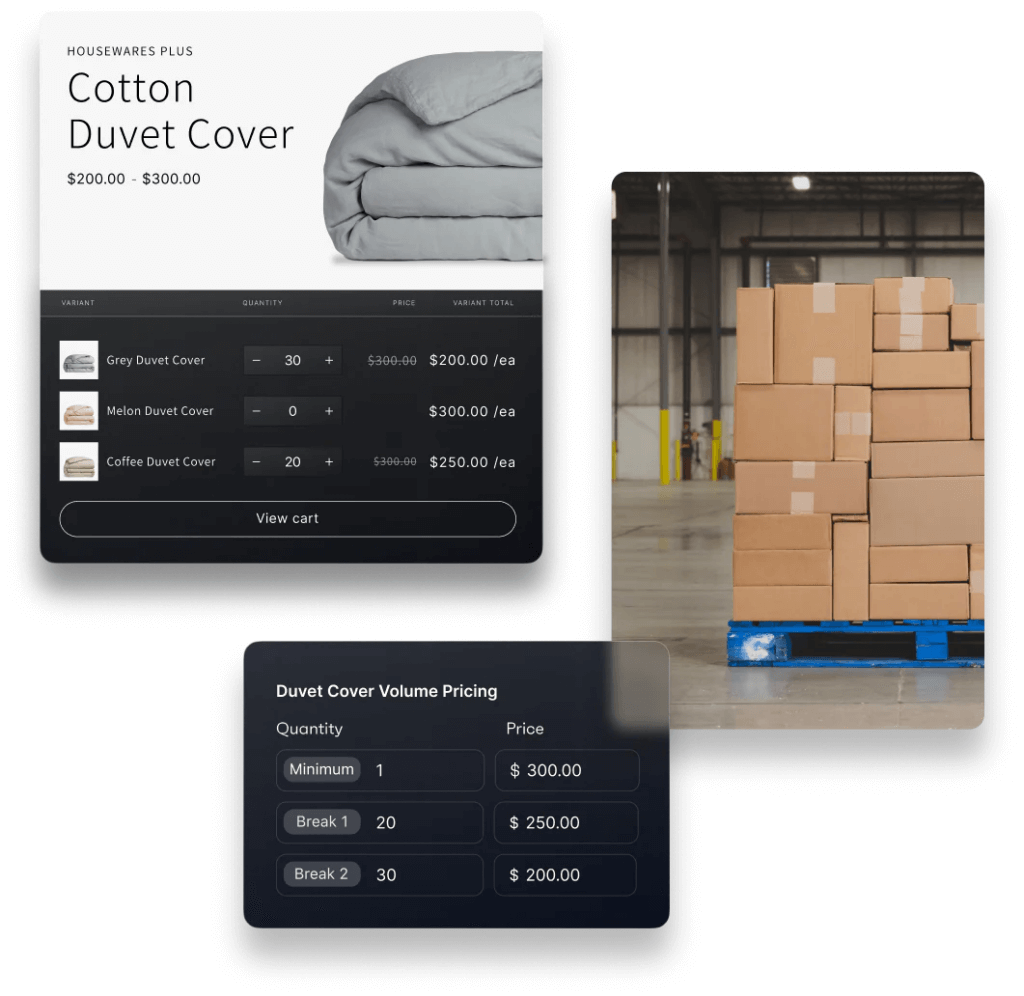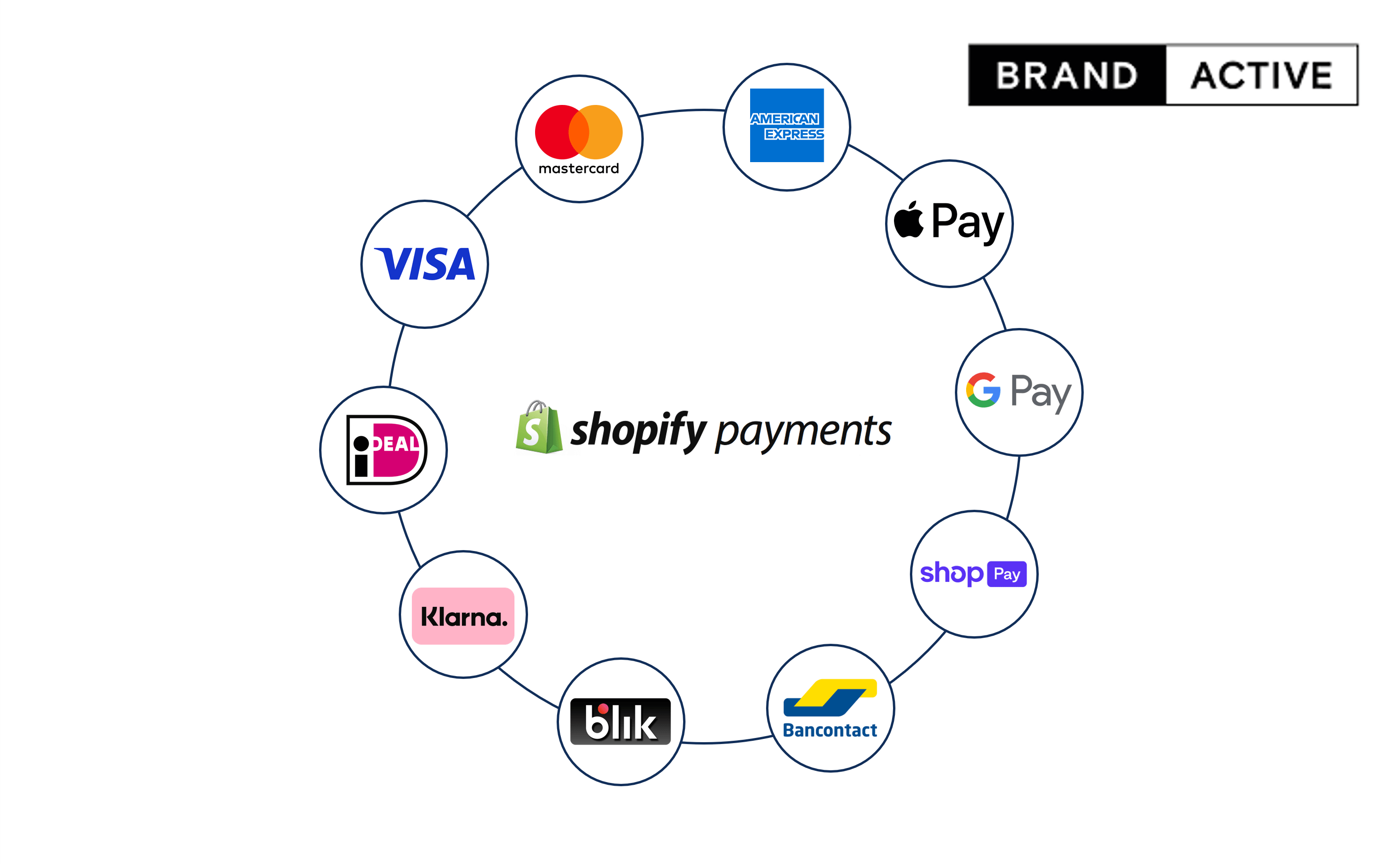
The digital transformation, which has been progressing ever more strongly in recent years, has accelerated the dynamics of change in global e-commerce. Companies have begun to look for opportunities to reach consumers quickly and efficiently through online sales platforms. One of the challenges facing store owners has been and continues to be finding a solution that can serve both B2C (Business-to-Consumer) and B2B (Business-to-Business) activities simultaneously. This is because maintaining several separate systems is not cost-effective and, because of the dispersed structure, makes it difficult to effectively manage all branches of business. However, there are platforms that provide the opportunity to conduct effective sales on a global scale in both segments. Shopify is an example of a solution that pays special attention to creating optimal conditions for B2B businesses. How? We invite you to read our article.

Store customization
With a Shopify Plus subscription, which is necessary to start selling in the B2B model, you get the opportunity to create an extraordinary shopping experience, tailored to your customer profile and needs. Dedicated templates allow you to create an immersive storefront that attracts users’ attention. Besides, it is also possible to design a custom design using the Liquid framework. For brands looking for innovative solutions, Shopify provides headless, thanks to which interactions with consumers are possible, for example, from the level of watches.
Unique shopping experience
Shopify Plus allows you to design a unique path for each store customer with more than 13 000 applications. With them, any e-commerce can be enriched with:
- dedicated product catalogs – customizable by location or user profile,
- quantity rules – for individual products, variants, number of pieces available in an order,
- wholesale price list – customized for an increased number of orders,
- complex pricing schemes – stores can thus set different price thresholds for specific customers in specific markets.
Self-service shopping
One of Shopify’s advantages when it comes to driving B2B sales is undoubtedly the ability to quickly automate sales through a self-service purchasing mechanism that requires no store employee intervention. This process consists of several solutions:
- quick order list – including variants of all products available in the catalog (sizes, colors, etc.),
- flexible payment options – configuration of methods of paying for orders and the process of sending invoices,
- mechanism for renewing orders – directly from the customer account, with a single click,
- payment reminders – system-generated notifications about the need to pay for an order within a certain time frame.
One platform, many opportunities
Depending on existing business needs, Shopify gives everyone the option to choose between running a joint store tailored for Direct to Consumer and B2B operations (with separate checkout and payment authorization), or setting up a separate store dedicated solely to Business to Business operations. Regardless of the decision, each solution can be conveniently managed from the Shopify dashboard.
Advanced integrations
Shopify Plus allows you to integrate your store with external ERP and CMS systems via an extensive API. In addition, access to a set of APIs dedicated to B2B allows you to create custom solutions to facilitate the operation of the store such as: loyalty programs, a system for collecting comments on orders, generating delivery instructions from checkout.
Flexible API
Shopify’s features allow developers to extend and modify the logic of the engine, which in turn translates into new possibilities for customizing payment methods, delivery or order discounts. Such freedom allows stores to meet their unique business needs.
Process automation
Shopify allows you to automate the workflow between your store, wholesale, warehouses and customers. Management of orders, shipments and invoices can be easily configured by creating the appropriate events and rules in the Shopify Flow tool. Adding accounts for sales representatives in the shopify system allows salespeople to place orders on behalf of customers – greatly simplifying the work of the sales department. Creating draft versions of checkout and quote templates allows for more flexible processing of B2B orders – approval of a draftee automatically triggers the further process of the purchase path.
Summary
Shopify provides many solutions to support and optimize B2B sales. Shopify’s advanced store personalization and checkout capabilities can help companies meet even the most demanding business needs. Access to more than 13,000 apps provides a wide range of options for further development of the store in the future. Custom pricing and product availability options for ordering fit into the rapidly changing realities of B2B sales. If you’re looking for a platform that will provide you with a reasonably good B2B e-commerce experience, Shopify is definitely a recommendable choice. If you would like to learn more about how the process of implementing a store on Shopify looks like – feel free to talk to a Brand Active consultant.



